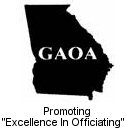"Form 1120 Versus Form 990"
"Associations in Good Standing Submits Form 990 "
Form 1120 - U.S. Corporate Income Tax Return
Local officials associations, incorporated or unincorporated, having a Federal Employer Identification Number (EIN), no IRS Determination Letter are obligated by IRS directives to report gross receipts yearly. Corporate tax rate ranges from 15% to 39% depending on gross receipts. If an association has never filed, well, that association is going to need assistance from a professional tax preparer or a licensed IRS Enrolled Agent, the latter is preferred, as they are well versed in IRS directives and policies.
Local officials associations, incorporated or unincorporated, having a Federal Employer Identification Number (EIN), no IRS Determination Letter are obligated by IRS directives to report gross receipts yearly. Corporate tax rate ranges from 15% to 39% depending on gross receipts. If an association has never filed, well, that association is going to need assistance from a professional tax preparer or a licensed IRS Enrolled Agent, the latter is preferred, as they are well versed in IRS directives and policies.
Form 990 - Return of Organization Exempt From Income Tax
Local officials associations, incorporated or unincorporated, with IRS "tax exemption", normally files a version of Form 990, depending gross receipts. This reporting is done once every three (3) years or yearly, regardless of gross income. Which version of 990 is filed depends on gross receipts. Associations without exemption, but has a Federal Employer Identification Number (EIN), are at risk for IRS penalties and fines. Gross receipts of state approved associations is public knowledge. All records maintained by the association is open to the public, in accordance with Georgia Open Records Act. Because no one has made a request of an association to provide financial data, those associations assume they are exempted from reporting and responding positive to a request for records.
Note: Churches, and certain religious groups, with IRS tax exemption, are not required to file a tax return.
Local officials associations, incorporated or unincorporated, with IRS "tax exemption", normally files a version of Form 990, depending gross receipts. This reporting is done once every three (3) years or yearly, regardless of gross income. Which version of 990 is filed depends on gross receipts. Associations without exemption, but has a Federal Employer Identification Number (EIN), are at risk for IRS penalties and fines. Gross receipts of state approved associations is public knowledge. All records maintained by the association is open to the public, in accordance with Georgia Open Records Act. Because no one has made a request of an association to provide financial data, those associations assume they are exempted from reporting and responding positive to a request for records.
Note: Churches, and certain religious groups, with IRS tax exemption, are not required to file a tax return.
22 February 2012. IRS posted updates to Master File Data. The Georgia's list contains 38,957+ organizations with 501(c)(?) status; choice of text file or excel downloads. You can get a copy at SOI Tax Stats - Exempt Organizations: IRS Master File Data
In 2010, the IRS through their news releases granted several extensions to get nonprofits, incorporated, unincorporated, tax exempt or no exempt to file a version of Form 990. If an organization's gross receipts was $5000 or more. There is no way the IRS is going to allow non religious groups, not to file a tax return. Especially, if that organization has a Federal Employer Identification Number (EIN). Having an EIN means that number should be used for tax reporting and 1099 use.
On June 9th, the Internal Revenue Service published its first Automatic Revocation of Exemption List (by state) and it lists approximately 275,000 nonprofits whose tax-exempt status has been revoked, because they failed to file an IRS Form 990, 990-N, 990-EZ or 990-PF for three consecutive years. Georgia revocation totalled 7,656. Losing tax-exempt status means organizations can no longer accept tax-deductible donations. Any income they receive can be taxed, according to the Internal Revenue Service. Those organizations without tax exemption can be taxed on all funds they receive.
This does not affect local sports officials associations as donations equal 1099 payment for contractual services provided to contracting parties. Associations owes the public and the community its based in total compliance.
The Congressional Pension Protection Act - 2006 brought about a lot of changes to the tax code. The Internal Revenue Service was given more powers to get organizations to comply and report their gross income. Having completed Part 1, the IRS now will set its sights on organizations with an EIN, who have never file a tax reporting form. Recently, the IRS made a change to those organizations with an EIN or applying for an EIN. Organizations are now required to name a "responsible party" when applying for a Federal Identification Number. Organizations with an EIN must fax or mail in the name of the "responsible party". Visit IRS website for instructions.
Updated 1 March 2012



